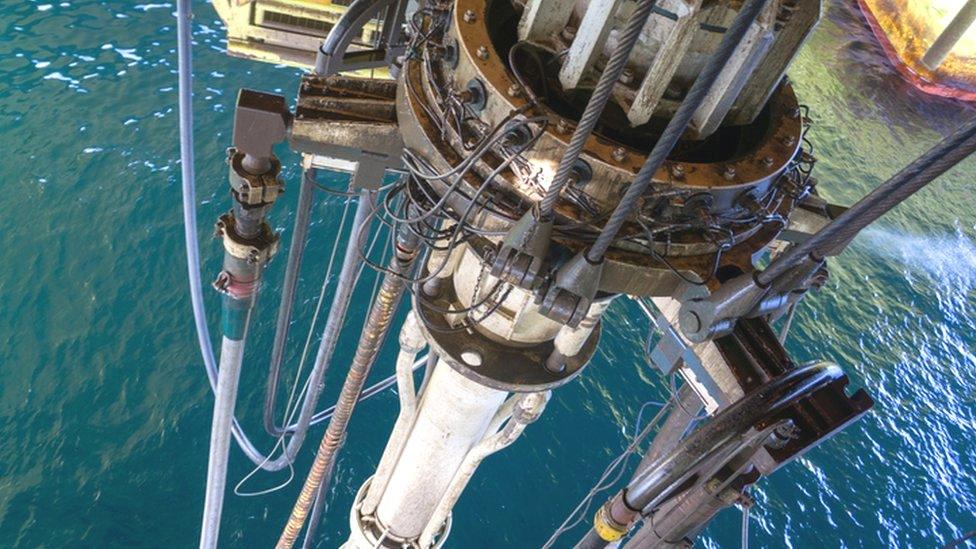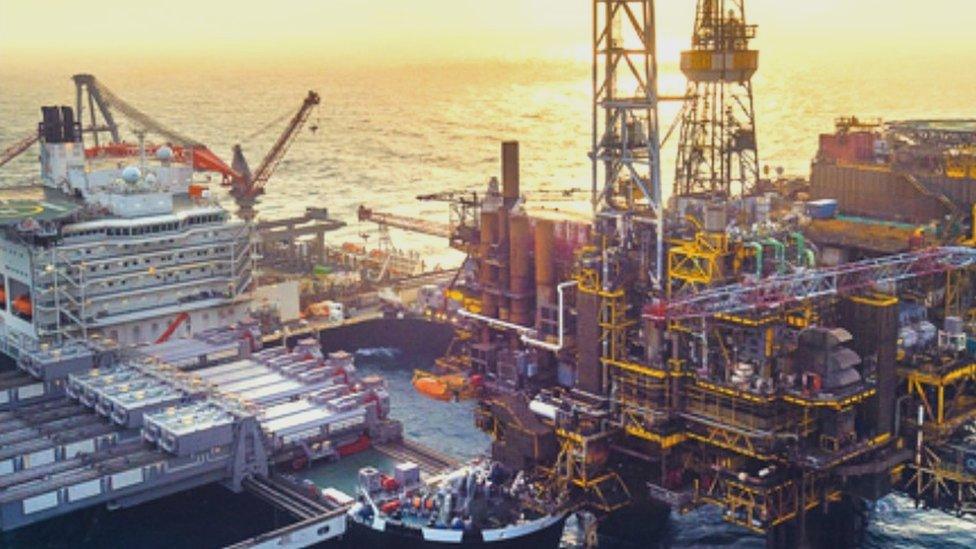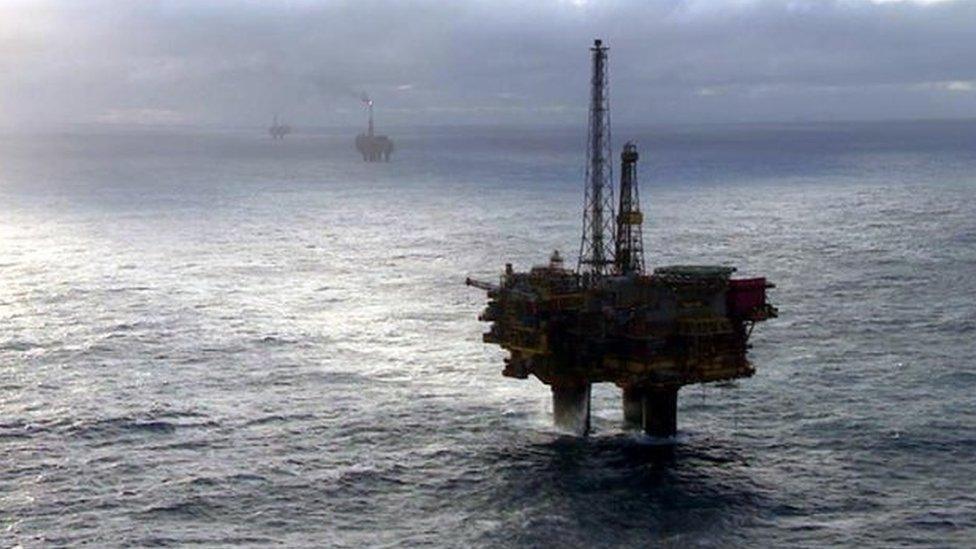Offshore decommissioning spend forecast at £20bn over next decade
- Published

OEUK expects £2bn to be spent this year on decommissioning
Almost £20bn will be spent on decommissioning in the North Sea oil and gas sector over the next decade, according to an industry report.
Offshore Energies UK (OEUK) said it was at the start of an upsurge in activity.
The industry body expects £2bn to be spent this year on withdrawing offshore energy infrastructure from use.
OEUK said it anticipated about 2,100 wells would be decommissioned over the next 10 years at a cost of £7.8m per well.
But it warned of pressures, as the rapid growth coincides with a big push to develop offshore wind.
This year, 14% of UK oil and gas expenditure is being spent on decommissioning - and that is due to rise to 19% by 2031.
The forecast, in the Decommissioning Insight report, is a significant increase on last year's predictions.
In the 2021 report, OEUK said it expected spend over the next decade to come to £16.6bn and 1,700 wells.
Some of the work is being brought forward to be done in clusters, but the industry insists that does not mean an increase in the rate of decline for the North Sea sector.

The industry body says decommissioning poses a challenge as well as an opportunity
Decommissioning manager Ricky Thomson said: "The UK's decommissioning sector is snowballing and will continue growing for years to come.
"But this poses a challenge as well as an opportunity. The growth of renewables and demand for decommissioning services and expertise will create increasing pressure for resources.
"This is a great problem to have and it's vital this opportunity is properly managed across the sector so that UK firms can capture the lion's share of this £20bn opportunity."
There's been a significant push in recent years to drive down the costs of decommissioning.
Since 2017 those costs have fallen by a quarter, driven by technology.
In the next two years, the sector expects to decommission more than 600 wells and 1,800 km (1,120 miles) of pipelines.
Almost 60 installations - known as topsides - are also expected to be removed.


This is the growth of a whole new sector for Scotland which we've known has been coming for a long time.
Much of the spend will be in the existing supply chain, but OEUK makes it clear that the work has to be "won" if it's to stay in the UK.
That's why it says there needs to be "the right support from government" for that work to stay at home.
The scrapping of steel from the platforms could be done anywhere and much of it so far has landed overseas.
But the plugging and decommissioning of wells can only be done on site.
Although less visible, this is the more lucrative side to decommissioning because it requires much more high-skilled, high-paid work.
And because the North Sea is one of the world's "mature basins", the expertise gained here could be exported elsewhere in years to come.

Related topics
- Published4 August 2022
